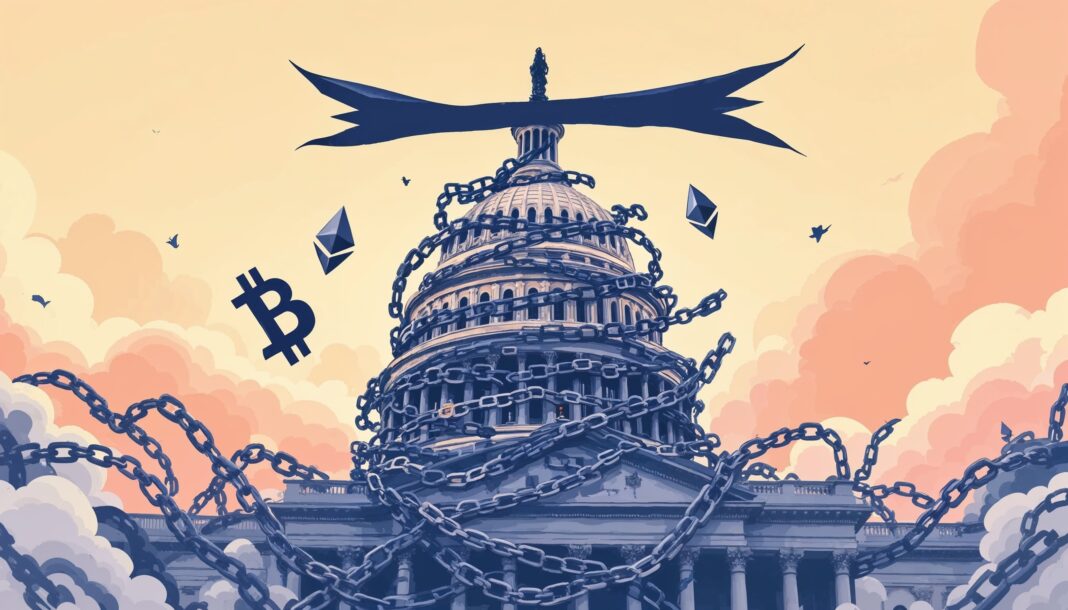Charles Hoskinson, the founder of Cardano, has openly criticized the U.S. government’s stance on cryptocurrencies, calling for more sensible and innovation-friendly policies. Hoskinson emphasized the need for regulatory clarity and a balanced approach that promotes growth while ensuring consumer protection.
Cardano’s founder, Charles Hoskinson, has not shied away from expressing his views on the U.S. government’s approach to regulating cryptocurrencies. In a recent statement, Hoskinson criticized the current regulatory environment as being overly restrictive, warning that the lack of clarity and the heavy-handed actions of regulators could push innovation out of the United States. His comments come amid growing concerns within the crypto community about how U.S. policies might impact the future of blockchain technology and digital assets.
The Need for Clearer Regulations
Hoskinson’s main concern revolves around the ambiguity surrounding U.S. crypto regulations. The current regulatory landscape, which includes enforcement actions by agencies like the SEC, has left many crypto projects in a state of uncertainty. Hoskinson argues that this lack of clarity is not only stifling innovation but also discouraging entrepreneurs from building blockchain projects in the U.S.
“The regulatory framework in the United States is holding back the potential of blockchain technology,” Hoskinson said. “We need policies that foster innovation rather than drive it offshore.”
Hoskinson called for the U.S. government to create a comprehensive regulatory framework that provides clear guidelines for businesses operating in the crypto space. Such a framework, he believes, would help protect consumers while also encouraging the growth of blockchain projects and investments in the country.
Balancing Innovation with Consumer Protection
One of the key points raised by Hoskinson is the need to balance innovation with consumer protection. He acknowledged that while regulation is necessary to prevent fraud and protect investors, it should not be so restrictive that it stifles innovation. Hoskinson believes that a more balanced approach could help the U.S. become a leader in blockchain technology rather than lagging behind other countries with more favorable policies.
“We need regulations that are flexible enough to adapt to this fast-evolving space,” Hoskinson stated. “The goal should be to create a safe environment for consumers while also giving innovators the freedom to experiment and build.”
Hoskinson pointed out that other countries, such as Switzerland and Singapore, have managed to strike a better balance between regulation and innovation, attracting blockchain projects and investments. He urged the U.S. government to take cues from these jurisdictions to create a more supportive environment for the crypto industry.
Implications for the U.S. Crypto Industry
Hoskinson’s comments highlight the broader challenges facing the U.S. crypto industry. The current regulatory uncertainty has led to fears that talented developers and promising blockchain projects will move to countries with more favorable regulations. This could result in the U.S. losing its competitive edge in the global race for blockchain innovation.
“If the U.S. continues down this path, we risk losing out on the next wave of technological innovation,” Hoskinson warned. “Other countries are embracing blockchain, and we need to ensure that we don’t fall behind.”
The potential consequences of regulatory inaction are significant. A hostile regulatory environment could stifle the growth of the crypto industry in the U.S., driving talent and capital to other regions. Hoskinson’s comments serve as a call to action for policymakers to recognize the potential of blockchain technology and create an environment that supports its growth.
Calls for Collaboration and Dialogue
In his critique, Hoskinson also emphasized the importance of dialogue between regulators and the crypto industry. He called for open communication and collaboration to ensure that any new policies reflect the realities of the blockchain space and address the needs of both consumers and innovators.
“Regulators and industry leaders need to work together to create policies that are effective and forward-thinking,” Hoskinson said. “Only through collaboration can we create a regulatory environment that benefits everyone.”
Hoskinson expressed hope that future U.S. administrations and regulatory bodies would take a more proactive and collaborative approach to crypto regulation. By engaging with the industry and understanding its challenges, he believes that the U.S. can create a more favorable environment for blockchain innovation and maintain its position as a leader in technology.
Conclusion: A Call for Sensible Crypto Policies
Charles Hoskinson’s criticism of U.S. crypto policies reflects a growing sentiment within the blockchain community that the current regulatory approach is holding back innovation. By calling for clearer guidelines, a balanced regulatory framework, and greater collaboration between regulators and industry leaders, Hoskinson is advocating for policies that support growth and protect consumers without stifling the potential of blockchain technology.
As the crypto industry continues to evolve, the U.S. government’s approach to regulation will play a crucial role in determining whether the country remains at the forefront of digital innovation or falls behind in the global race for blockchain adoption. Hoskinson’s comments serve as a reminder of the importance of getting regulation right to unlock the full potential of this transformative technology.
This article reflects the opinions of the publisher based on available information at the time of writing. It is not intended to provide financial advice, and it does not necessarily represent the views of the news site or its affiliates. Readers are encouraged to conduct further research or consult with a financial advisor before making any investment decisions.



